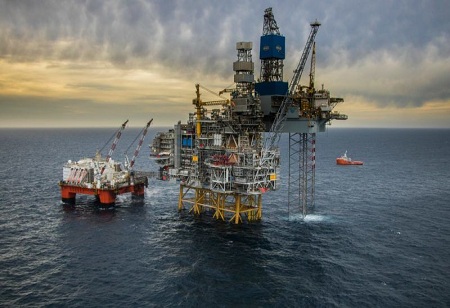Rapid industrialization, usage of gas coupled with increasing population and economic growth is driving the demand for energy products and solutions and this has led to an increase in exploration for location new fields, development of unconventional resources, look out for new
oil-producing techniques specifically secondary/tertiary, surge in demand for skilled labor &
oil field services and equipment in the upstream segment.
Moreover, focus on the midstream and downstream landscape has resulted in the development of transmission and distribution networks, and construction of field-based refineries, located near the oil wells would help in reducing operational costs, freight charges, etc. and also, in the expansion of the petroleum product distribution network.
The significant growth and surge in demand for energy resources specifically in Asian countries will continue to exceed their production and availability resulting in increased dependence on imports, which will increase the vulnerability of countries to energy shocks and increasing domestic demand.
Oilfield consultants possess experience in oil and gas field operations. These consultants are employed to supervise activities and personnel on location for an operating company. The operations/activities include drilling, completion, and production operations as well as safety supervision and site construction. Oil companies are not only faced with a surge in demand for reduction in emissions, but these companies need to adopt newer ways of meeting fuel and feedstock demand.
Exploring the possibility of investments in fossil fuels
India is in the process of exploring the possibility of major investments in fossil fuels and other areas of the energy sector. The country is exploring these areas in Russia’s Arctic region. This is a new global source for both renewable and non-renewable resources. The current investment of our country in Russia stands at USD 15 billion in oil and gas projects. Furthermore, India is looking to expand its presence in the new oil project.
In one of the recent briefing for local media in the Russian capital, the Indian Ambassador to Moscow hinted about India’s growing interests in the Arctic region. Currently, both sides are holding discussions on the issue. Also, India’s recently released draft Arctic policy hinted at increasing presence in Russia’s Arctic region. It stated that the region comprises reserves of “mineral deposits – copper, phosphorus, niobium, platinum -group elements and rare earth”. India is also exploring ways to harness renewables such as hydroelectricity, bioenergy, wind power, solar, geothermal, and ocean ways - from Arctic regions. This is planned to be conducted under the jurisdiction of Russia and other countries.
Former president of Iceland, Olafur Ragnar Grimsson, had said in a lecture last year that India’s interest in a “faraway place”, the Arctic, was justified because “the future of India, will be, to a large extent, determined by the Arctic and the future of Arctic will also be determined by what takes place in India and other Asian countries”. Pointing out that the Arctic is “extraordinarily rich in energy resources and ocean resources,” he had said that “over 20 percent of Russian exports earning now come from the Russian Arctic”.
